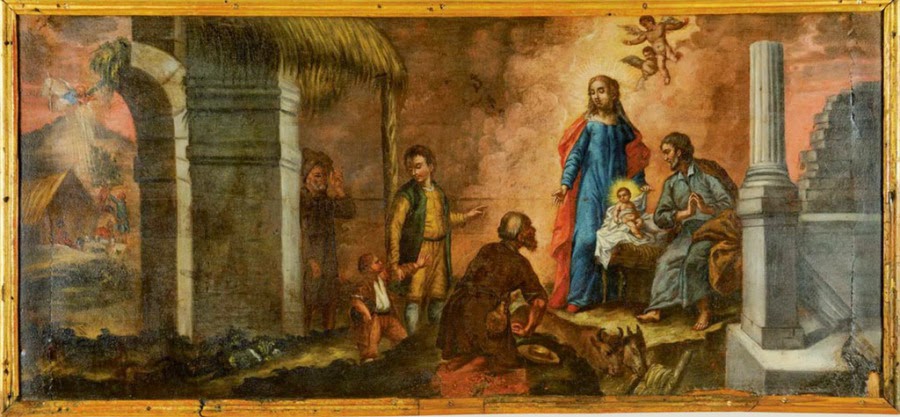
Freemasonry in Zakynthos

Although it is difficult to entirely document the fullest extent of Freemasonry’s influence, due to its historical secrecy, it is generally believed to have played a critical role in fostering the sentiments of national liberation among Greeks – ultimately leading to the Greek War of Independence. Given its proximity to western Europe, and the substantial number of Ionian Islanders studying in northern Italy, Freemasonry first flourished in the Ionian Islands.
The first official lodges were created in the eastern Mediterranean by the Scotsman and British consul, Alexander Drummond. He was appointed consul of Britain in Aleppo, Syria in 1744 while at the same time he was authorized by the Grand Lodge of Scotland to found lodges in the eastern Mediterranean. During his long journey to Aleppo to take up his duties, he passed through various Greek islands including Zakynthos. Significantly, in Zakynthos he detected pre-existing knowledge and perhaps even unofficial practice of Freemasonry. According to his diary entries published as, Travels through Different Cities of Germany, Italy, Greece and Several Parts of Asia, he discussed Freemasonry (as well as the philosophy of John Locke and experimental science) with local Zakynthian notables such as the doctor, Nikolaos Athineos and the priest, Antonios Katiforos. Katiforos was probably exposed to Freemasonry during his stay in northern Europe. During their conversations Katiforos tellingly claimed to have written a paper against the Papal Bull In eminenti issued by Clement XII in 1738, where he wrote, ‘using common sense he ridiculed himself as he [the Pope] deserved, excommunicating the Freemasons without knowing anything about Freemasonry’. Drummond’s hosts also they declared enthusiasm for Freemasonry and expressed their wish to establish a lodge in Zakynthos. However, there is no evidence in the archives of the Grand Lodge of Scotland and of Drummond’s that its foundation took place. Regardless, this encounter on Zakynthos clearly demonstrates that some Zakynthians were positively disposed to Freemasonry at this early stage. Around 30 years later, the Venetian authorities were informed that Zakynthian students at the University of Padua were attempting to establish a lodge in Zakynthos. This implies that Zakynthians were already initiated in lodges in northern Italy.
The first lodge in Greece is considered to have been created in 1782 in Corfu under the name of Beneficenza; however, there is evidence the lodge functioned irregularly since at least 1771. The lodge was under the direction of the Grand Lodge of Verona, based in Padua, Italy. Although, this lodge would close and re-open again with the arrival of the French, other lodges were also opened in the early 1800s in Corfu. Soon Freemasons would spread the organizational structure of Freemasonry all around the Greek diaspora in Europe and other Greek islands such as Zakynthos.
At least from 1810, there operated a lodge named Philanthiaropia (Philanthropy) and another called degli Amici Fideli (of the Faithful Friend) in Zakynthos. Surprisingly, there is no evidence the first lodge was under the authority of a superior authority. By the spring of 1815, the Zakynthian Dionysios Romas, established the first official lodge in Zakynthos called Renaissance Phoenix established under its parent lodge in Corfu. Members included figures which played, and would continue to play, a critical role in events over the next few years such as Dionysios Romas, Konstantinos Dragonas, Panagiotis Stefanou, Dionysios Flambouriaris and Ioannis Martinengos. Many of these people also became members of the Filiki Etairia and would go on to contribute to the Greek War of Independence. In 1816, the lodges of Corfu and Zakynthos established the first Grand Lodge in what would become Greece, the Grand Anatolian Lodge of Hellas.
The Renaissance Phoenix, under the leadership of Romas, Dragonas, Stefanou, and later Giorgios Tertsetis and Antonios DeRossis, and many others were instrumental in establishing many important civil associations and organisations many of which continue until today such as the Philharmonic Association, the Philodramatic Association, Theatre Foskolos, Medical Society of Zakynthos and club, The Zakynthos. This lodge would endure under until 1848.
Other lodges would be established over time which would include other prominent Zakynthian members such as Alexandros Romas. Today, two lodges operate in Zakynthos, the Astir of the East and Helios.